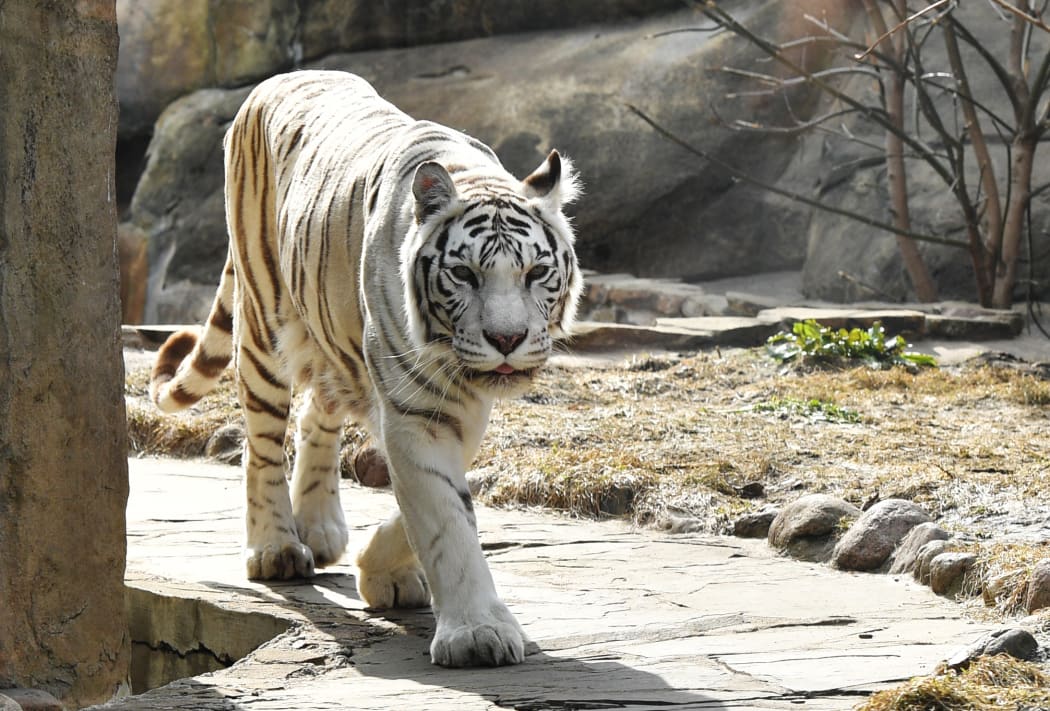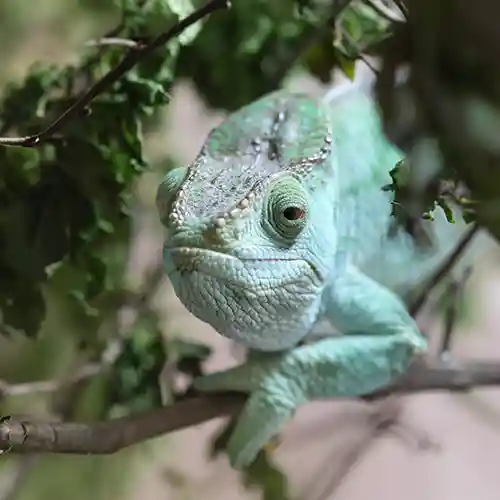
"The greatness of a country and its moral development can be evaluated by the way its animals are dealt with." - Mahatma Gandhi
Do you love animals and imagine operating in a zoo? Zoo keepers are key in safeguarding wildlife and caring for animals. At locations like the Zoological Society of London (ZSL), over 20,000 animals get the care they require from experts.

To become a zoo keeper, you require hard work, education, and a love for animals. This job is exciting, letting you deal with many types and help with crucial preservation work. If you're into wildlife or animal welfare, zookeeping might be ideal for you.
Beginning your zoo keeper profession indicates discovering what's needed. This guide will cover education, experience, and more. It's all you need to know to start a fulfilling zookeeping career.
Exploring what a zookeeper does exposes a role loaded with obstacles and rewards. They concentrate on animal welfare and preservation. Zookeepers work hard to keep animals healthy and zookeeper happy in their care.
A zookeeper's day is filled with crucial tasks:
Zookeepers work outside in all sort of weather. They handle both indoor and outdoor areas. The task needs being physically fit and able to manage the needs of looking after animals.
"Being a zookeeper is more than a job - it's a passionate commitment to animal care and conservation."
Zookeepers can specialise in lots of animal groups:
Your function might involve working with 2-5 different animal types. This needs a great deal of understanding and the capability to adjust.
To be a leading zookeeper, you require more than just a love for animals. Your job will be tough and need you to deal with animals and people well. You'll likewise need to understand animal behaviour.
What zoos search for in people includes:
Getting hands-on experience is essential to mastering this role. You'll need to show:
"A great zookeeper connects science, empathy, and conservation in every interaction with animals."
You should know about animal nutrition, behaviour, and basic vet care. Many zookeepers learn through training, volunteering, and ongoing learning.
Zookeeper work is not simply a job. It's a big commitment to teaching about wildlife and helping conservation. Your passion and effort will make you stand out in this satisfying profession.
Beginning a career as a zookeeper requires mindful preparation and education. You must initially understand the instructional needs and training paths. These will turn your love for animals into a task.
To be a great zookeeper, you need a strong academic base. A lot of jobs try to find specific qualifications:
Getting special accreditations can actually help you in your zookeeper profession. Crucial ones include:
Getting hands-on experience is type in zookeeper training. Lots of locations offer great chances:
Pro tip: Create an in-depth portfolio to reveal your animal care abilities. It will assist you in task applications.
Gaining hands-on experience is key for zookeeper those wanting to be zookeepers. The job is extremely competitive. So, it's important to begin constructing a strong base in animal care.
Your journey starts with finding ways to work directly with animals. This is a tactical step.
"Experience is the very best teacher in animal care" - Wildlife Conservation Experts
Here work ways to get experience working with animals:
Offering is a terrific method to learn about animal behaviour and care. Many zoos and animal shelters are searching for people who wish to find out. These locations use great opportunities to get hands-on experience and show your dedication to animal welfare.
Here are some tips to make the most of your experience:
Remember, useful experience makes you stand zookeeper apart in the zookeeping world. Each time you work with animals, you learn more. This increases your possibilities of getting a job in animal care.
Starting a profession as a zookeeper is interesting. It provides numerous chances to grow and specialise. Your journey begins with comprehending the different paths in this field.
Entry-level tasks in zookeeping are a fantastic start. They provide you hands-on experience. Zoos search for candidates with:
As you acquire experience, your career can grow. You can go up to:
"Continuous learning and practical experience are key to advancing in your zookeeping profession."
You can also select unique areas like:
About 25% of zookeepers get advanced degrees in zoology or animal preservation. Getting Level 4 qualifications can increase your opportunities for senior functions and research study.
Becoming a zookeeper means you'll work more than just regular hours. You'll face tough physical obstacles and require to be versatile, including weekends and holidays. Zoos are open every day, so you'll often work when others relax.
"Zoo keeping is not a normal 9-to-5 job-- it's a lifestyle of devoted animal care and dedication."
This task is physically demanding. You'll work outside in any weather, raising heavy items over 50 pounds. Your jobs might consist of:
Shifts can begin as early as 5 AM and go late into the night. You'll be on your feet most of the time, moving between animal zones. Weekends and holidays become part of the task, needing lots of stamina and devotion.
Despite the obstacles, this task has terrific rewards. You'll grow strong, both physically and mentally. You'll likewise make incredible connections with amazing animals.
Being a zookeeper features its own set of obstacles. It's essential to understand how to keep both animals and personnel safe. This implies following rigorous health and wellness rules.
Zookeepers deal with a special environment where security is key. Studies reveal that health and wellness are now as important as the zoo's primary work.
There are numerous methods to manage dangers in zoos:
Understanding which animals are most unsafe is vital. Big animals like rhinos can be extremely risky. There have been cases where zookeepers got seriously injured.
Safety isn't just about using gear - it's about understanding animal behaviour and staying alert.
Zookeepers require to wear the right gear, consisting of:
Getting vaccinated versus illness like liver disease B and rabies is also essential. It helps keep zookeepers healthy in their tough job.
Thinking of a career in zoo keeping? It's crucial to understand about salaries and the task market. The field is growing, with more opportunities in the UK.
Let's take a look at what zoo keepers can earn at various phases:
The task outlook for zoo keepers is good. The sector is expected to grow by 5% in the UK by 2029. This suggests around 3,910 new jobs will be available.
"The Association of Zoos and Aquariums supports expert growth for zoo keepers," a report says.
Incomes differ based on numerous things:
While the pay may not be high, the pleasure of dealing with animals is valuable. The average wage is around ₤ 17,000. However, overall incomes can be in between ₤ 13,000 and ₤ 27,000 a year.
Starting a career in animal care is an amazing journey. It needs devotion, enthusiasm, and a love for learning. With over 350 zoos and wildlife places in the UK, there are lots of job opportunities. You'll get to deal with incredible animals and assist safeguard wildlife.
To be a zoo keeper, you need more than simply love for animals. You should have a good understanding of biology, be able to communicate well, and constantly wish to learn more. You'll gain hands-on experience, learn about animal welfare, and establish a deep respect for nature. About 3,000 individuals in the UK have discovered fulfilling professions in this field.

Your success in zoo keeping comes from blending science with a love for animals. Whether you're interested in mammals, birds, or marine life, this task lets you assist with conservation. Every day will bring new obstacles and learning opportunities that will improve your skills and knowledge.
If you like animals and wish to help safeguard wildlife, zoo keeping might be for you. Take on the difficulty, stay curious, and turn your passion for animals into a satisfying career.
